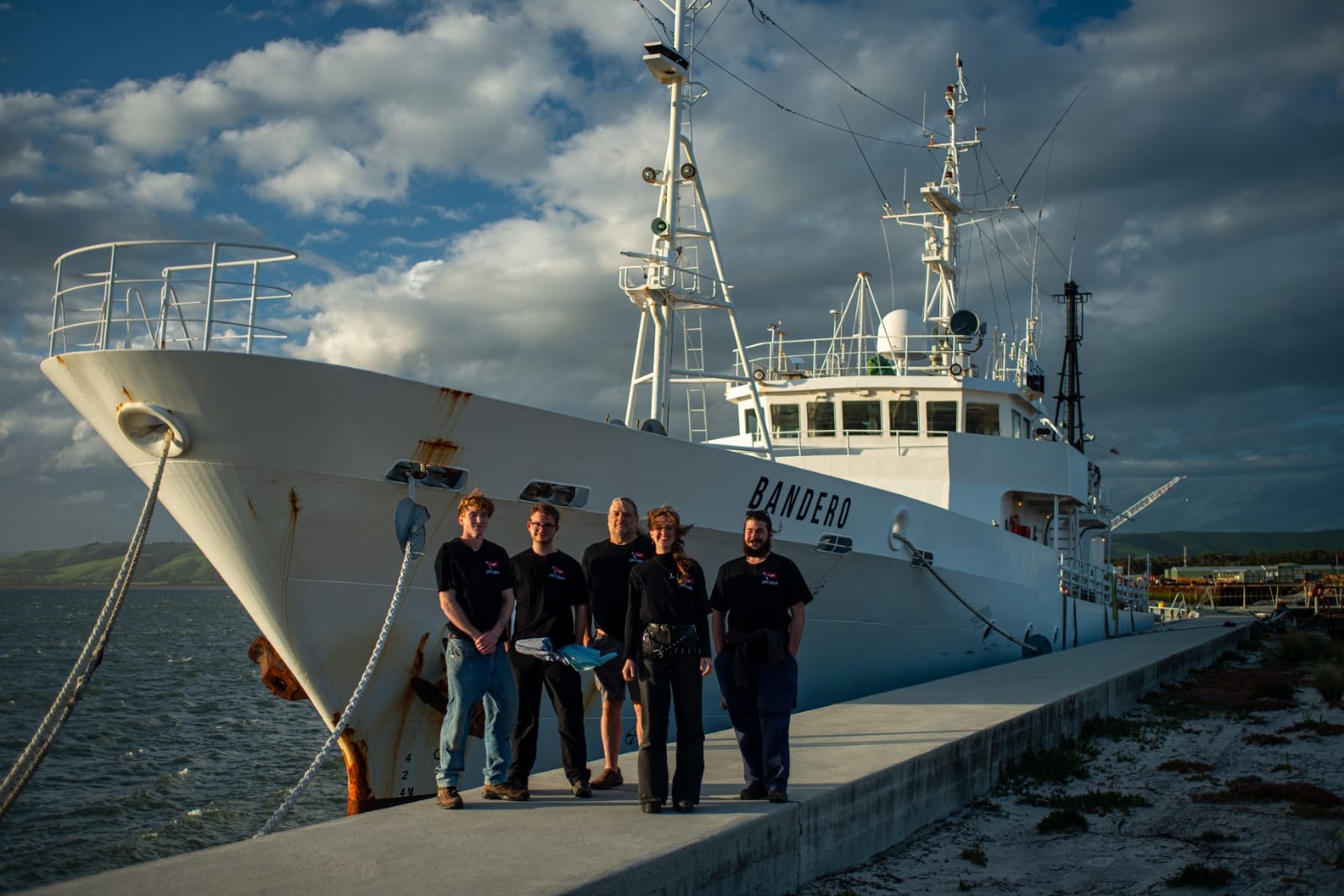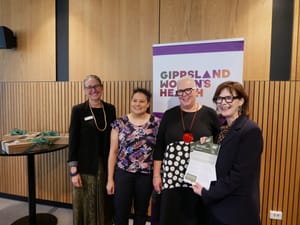Keen-eyed visitors to Toora’s bird hide may have noticed a new ship being refitted across the inlet at the dock at Port Anthony near Barry Beach - called the Bandero. It’s part of a fleet put together by conservation organisations that will try and prevent industrial trawlers from Norway, China, South Korea, Chile and Ukraine overfishing krill in Antarctica.
The Bandero is owned by the Captain Paul Watson Foundation, and is due to launch on its mission in early January. In a statement to media, a Foundation spokesperson said that krill - a tiny, shrimp-like crustacean - is “the foundation of life in one of the planet’s most vital ecosystems and they are being wiped out before our eyes.”
“Industrial trawlers are strip-mining the Southern Ocean, taking krill by the hundreds of thousands of tonnes each season to produce feed for farmed salmon and supplements for human consumption,” the statement said.
In October, a conference was held in Hobart to discuss the creation of a marine protected area around Antarctica in regards to krill fishing. The conference was stymied by Russia and China, and as of yet, no changes to the regulations or conservation areas have been made.
Antarctic krill is the keystone species of the Southern Ocean. Most predators (including whales, seals, seabirds, squid and finned fish) use it as a primary foodsource, and it is the main primary consumer of its environment. Changes in their populations affect every level of the food web through a process known as trophic degradation.
Krill fishing has been an expanding operation over the past few decades, from around 100,000 tonnes in the 1990s, to four million tonnes in the 2010s. This has sparked a number of worldwide conservation measures, including a catch limit of 620,000 tonnes in Antarctic waters until further research on krill populations takes place. A multinational company based out of Norway, named Aker Biomarine, is currently trying to double that limit.
In addition to being a keystone species for the ecosystem, krill are also an asset in carbon sequestration. In marginal ice zones between spring and autumn alone antarctic krill expel an estimated 40,000,000,000 tonnes of carbon in their faecal pellets, much of which sinks to the sea floor and is sequestered out of the atmosphere, making them a vital species for the preservation of our worldwide environment.
The Bandero is open to visitors and the crew are welcoming volunteer help, particularly engineers, carpenters, welders, and maritime specialists, along with any other volunteers or tools that can be lent to the ship. They are in need of a defibrillator for the boat and are also accepting vegan food donations of any kind. Anyone able to assist can contact Emerson Castro on 0413 346 872. Zav Evans



